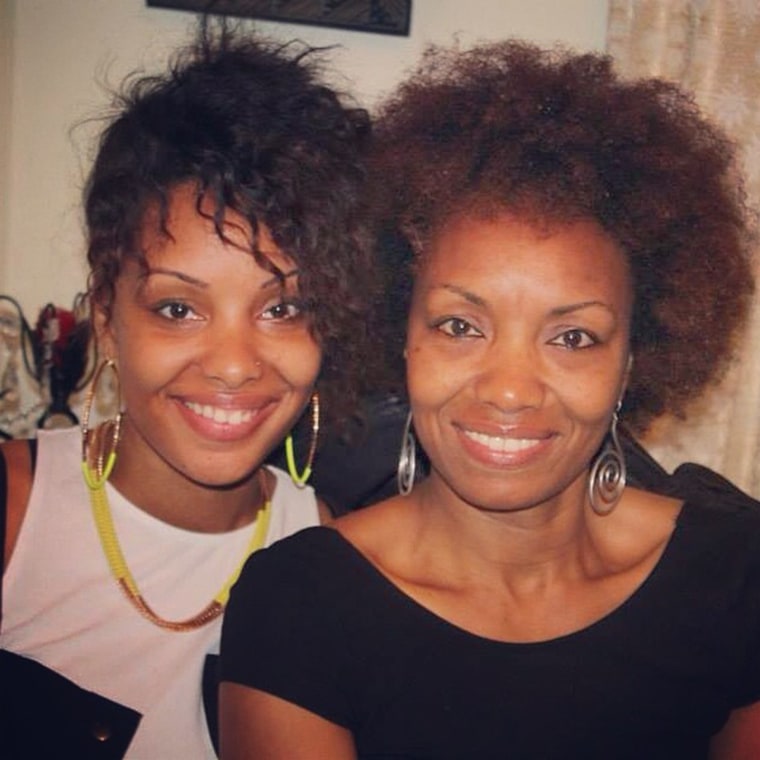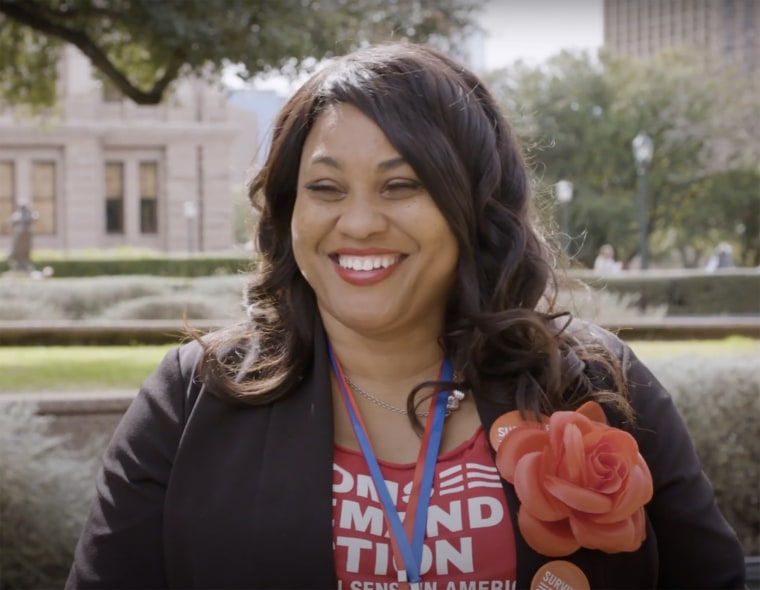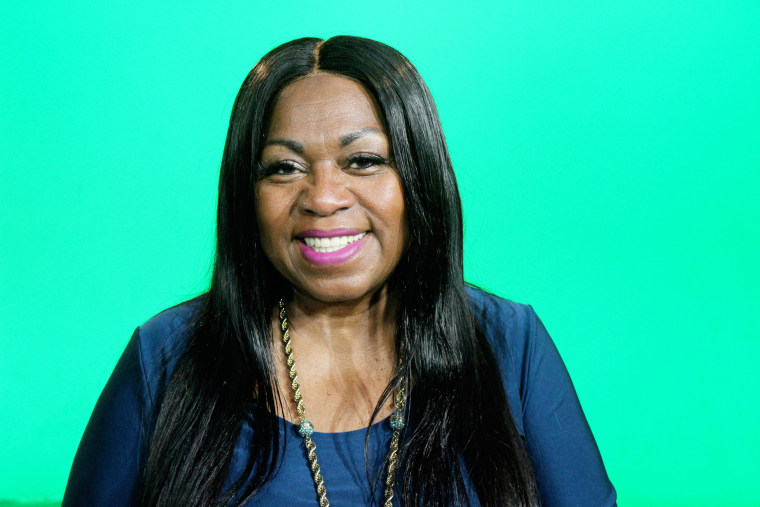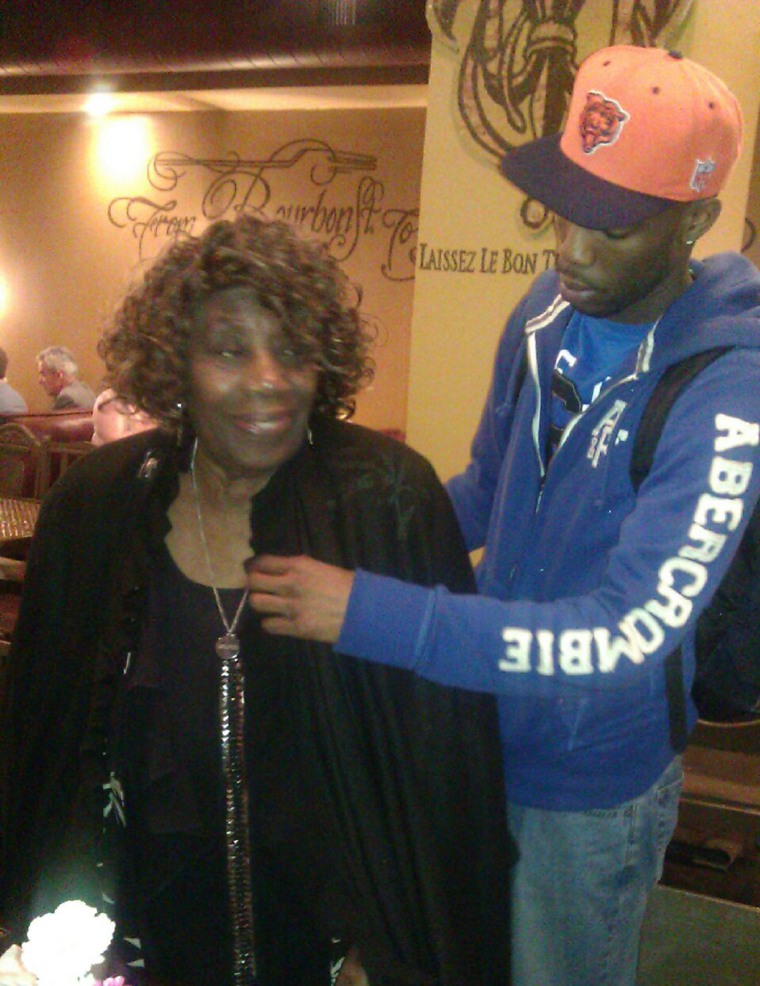On July 25, President Joe Biden honored Emmett Till and his mother, Mamie Till-Mobley, with a monument spanning two states, calling for Americans to learn the country’s full history.
In 1955, 14-year-old Till was murdered after the young Black boy was accused of “flirting” with a white woman in a grocery store. The woman’s husband and brother killed the child, beating him nearly to death, gouging out his eye, then shooting him in the head before throwing his body into a river.
Till’s murderers were charged but found not guilty by an all-white jury. The white woman who accused the boy of grabbing her eventually recanted her story in 2017, according to Tim Tyson, author of the book "The Blood of Emmett Till."
Mamie Till-Mobley famously insisted that her son's casket be kept open at his funeral, showing the full extent of his injuries.
“I wanted the world to see what they did to my boy,” she said.
Till-Mobley died in 2003, long before the president announced the monument or signed the antilynching bill named after her son into law in 2022.
But her legacy lives on in the Black mothers of today, who are still losing their children to violent and systemic racism.
From police brutality to the Black maternal mortality crisis, gun violence and a rise in white supremacy, Black moms are forced to turn their pain into power, choosing to advocate for the children who've been taken from them and the communities they aim to protect.
Shawnee Benton Gibson
Benton Gibson's daughter, 30-year-old Shamony Gibson, died just 13 days after giving birth to her second child, a healthy baby boy. At home, Shamony was experiencing fatigue and shortness of breath; she told her doctors, but they did nothing. In early October of 2019, she collapsed at home and died of what was later determined to be a pulmonary embolism. Benton Gibson tells her story in the new documentary, "Aftershock," detailing the United States' Black maternal mortality crisis. Benton Gibson speaks on panels, organizes conferences and continues to be an unwavering advocate for reproductive justice and Black maternal health.
Black women are 2 -3 more times to die from pregnancy- and birth-related complications than white women.

"I've been doing reproductive justice work for over 20 years, so when Shamony died it was a blow to the system. I had all the information — she had a midwife; she had a doula; she worked out all the time; she's very spiritual; checking in all the time, and she still died.
I needed to be speaking about not just her death but how she died, and what we need to do to prevent this from happening again.
"There are loads to say about the things that happen to Black and brown birthing people. There was this false narrative that Black women are just able to have babies — we're baby-makers. Once again, racist tropes about how we are.
"The reason why I am able to grieve and lead at the same time is because of years of being in community with other anti-racists. I have been in anti-racist work since I was a young woman with small children, and my daughters were trained and developed to look at life through the lens of anti-racism and Blackness. So it made perfect sense for me to experience the devastation of Shamony's loss, and then to recognize that because we had a captive audience coming to mourn the loss of her life, that I needed to be on that platform speaking about not just her death but how she died and what we need to do to prevent this from happening again. And she wouldn't have had it any other way."
Calandrian Kemp
In 2013, Kemp's only son, George Kemp Jr., was shot and killed in Richmond, Texas, when he was 20 years old, after attending a school football game. Since that time, Kemp has become a dedicated gun violence prevention advocate with Moms Demand Action and the Everytown Survivor Network.
A study on a recent surge in shootings found that Black people and other people of color are more likely to become victims of gun violence.

"George lost his life that night with just young adults, out in the suburbs of Richmond, Texas. So I know George probably was thinking, 'Oh, this is just boys being boys,' not thinking that anybody would have a gun out in the suburbs.
Only a mother knows how she feels, that she had to walk away from her son and leave him in the ground. But those steps in between were so powerful.
"To know that my child lost his life, and everything that we celebrated with George is gone, just because young adults had access to guns? That is how I learned how to fight again. That is where I try to channel my energy now — to help save others.
"For Emmett Till's 50th anniversary, I went to Chicago and attended the event. I was at the cemetery, and was at Emmett's grave, and then we walked over to Mamie's grave. And that's when I broke down and cried, because I read her marker and it said, 'Her pain changed a nation.'
"I was just thinking: Only a mother knows how she feels, that she had to have to walk away from her son and leave him in the ground. But those steps in between were so powerful."
Valerie Castile
Castile's son, Philandro Castile, was fatally shot by a police officer during a traffic stop on July 6, 2016. Radio calls revealed that the officer said he was going to stop a car because two occupants looked like armed robbery suspects. Castile informed the officer that he had a gun permit and was armed, and was shot multiple times in front of his partner and her 4-year-old daughter. The officer who shot Castile and was acquited of manslaughter said he thought Castile might be reaching for his gun when he went to get his ID. Valerie Castile now advocates against police brutality and works to help police departments change their policies to reduce police violence.
Studies have shown that Black people are more likely to be killed by police officers, and that the number of Black people killed by law enforcement increased after the murder of George Floyd.

"When something happens to your baby that's so wrong on so many levels — this young man did everything right. I have never had to defend him until they killed him. When they were saying that he caused his own death, that's just so far from the truth.
They will not dismiss my son like he was nothing, when he was everything.
"I'm a God-fearing woman, and I believe in God and that he is in control of all things. I rely heavily on my faith and the spirit of my son. The easiest thing that I could have done was to do nothing — to accept the fact that my son had been murdered and the murderer walked away and there's no one fighting for policy change. Absolutely not. Not on my watch. They will not dismiss my son like he was nothing, when he was everything.
"I like to be included in different things to keep my son alive. He was a great, spirited man and he suffered a horrific fate. He was murdered for simply being honest and telling the truth. Where do we go from here, when your honesty, your integrity and dignity is at the forefront and you're still murdered? So I'm trying so hard to work on legislation to try to figure out how we can reform the police.
"We're definitely fighting a spiritual war, because we've done everything else humanly possible — we've sat at the table; we've asked; we've pleaded; we've begged, but our children are still killed, whether it's behind a wheel of a car, in their homes in a bed, or out at a store shopping."
Valerie Burgest
Burgest's son, Craig Williams, was shot and killed when he stopped at a store to buy gum on December 28, 2013. His family believes his murder was the result of a mistaken identity and to this day, it remains unsolved. Burgest now advocates for common sense gun reform as a member of Moms Demand Action and the Everytown Survivor Network.
An estimated 30 Black Americans are killed by by guns every day, and another 110 experience non-fatal injuries, according to the Everytown Survivor Network. A recent study found that while unsolved murders for white victims are decreasing, they are increasing for Black victims.

"After Craig was killed, I really didn't know what I was supposed to do. How I was supposed to do anything? How I was supposed to survive? And by chance, I came across an event where ladies were tabling for Moms Demand Action. I stopped and I talked to them, and they invited me to a local meeting. From that point I started to become involved with Moms Demand Action.
"In late 2017, I received an invitation to become an Everytown Survivor Fellow, and was accepted into that program in 2018. Being an Everytown Survivor Fellow, you're trained to tell your story. You're trained to uplift your loved one's voice, because they're no longer physically present to be able to speak for themselves.
When you bury your child, everything in your world really changes.
"That provided me with the platform in which I could talk about Craig. I can share Craig's world and Craig's life with people who never had the pleasure of meeting him. They could get to know my son. I could raise his voice. I could become an advocate for ending gun violence in this country. Because when you bury your child, everything in your world really changes. And you're dealing with so much trauma; you're dealing with heartache, and becoming a Fellow — it put me in touch with others who have experienced the same kind of loss and what that does is that you never have to explain yourself.
"You become a member of a club that nobody wants to be a member of, but we're here nonetheless. We provide each other strength and we uplift each other. And that's how we honor our loved ones."
